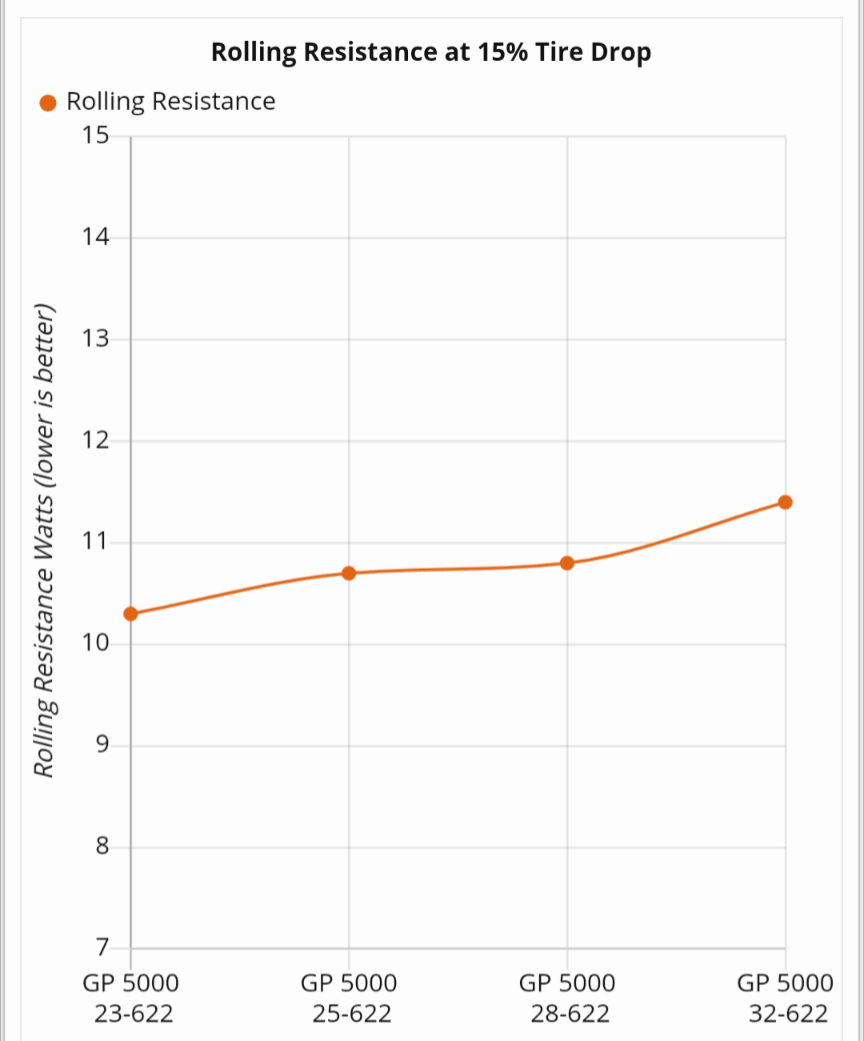Originally Posted by
mstateglfr
Do you read what I posted earlier? I don't think so, because you are still claiming things that aren't correct.
You don't need to only compare different widths of the same brand and tire. That's an absurd requirement because we are in the real world where people buy all sorts of brands and tires.
- not all tires come in widths that are 32mm and 40mm or close to those widths. Using your reasoning, if a tire doesn't exist in wider or narrower widths, then there is nothing faster than that tire. Again, absurd.
You can obviously compare different brands and models because real difference can happen when you change brands and models. I already gave examples of this. When comparing tires, people look at a bunch of options in their shop or on a website(s) then they buy what they want based on any number of factors. If they value price the most they can then buy the best rolling tire att hat price ort hee best flat protection at that price, etc. Tires from many brands will be compared, and that makes sense.
- I provided an example(and there are more) where tire widths from the same brand and model are compared and the wider tire rolls faster, even when psi is properly set.
- I provided an example where different brands are compared and the wider tire rolls faster even when psi is properly set.
Both are perfectly acceptable because in the real world people change brands and models all the time, so comparing varying brands and models is realistic and smart.
Also, we aren't in a velodrome. That isn't realistic so stop mentioning it.
Even though we aren't in a velodrome, drum testing uses a consistent and smooth rolling surface, and some wider tires of the same brand and model have tested to roll with less resistance. So while that isn't a velodrome surface, it is a pretty smooth surface.
Yes, a narrower tire in general will have less wind resistance on its own when compared to a wider tire. That difference in wind resistance is minimal compared to rolling resistance that can be saved in some situations. Again, the word 'some' is key since actual details matter.
This is just dumb.
If you're comparing different brands and models, of course you can choose a wider tire designed for speed and say it's faster than a narrower tire designed for durability. Duh.
But why are you allowed to choose fast tires while I am stuck with the slow stuff? I also have the right to choose a fast tire. What happens if I already chose a fast tire and you have no faster models to cheat with? That blows your argument out of the water. Bicyclerollingresistance.com did this exact test with a fast tire that you cannot cheat around, and the results were entirely predictable. Enjoy.
FYI you were misinformed about drum testing. They don't use a smooth drum. Their standard test is a patterned drum to simulate road bumps. Quite a rough pattern at that, far bumpier than typical suburban asphalt.
